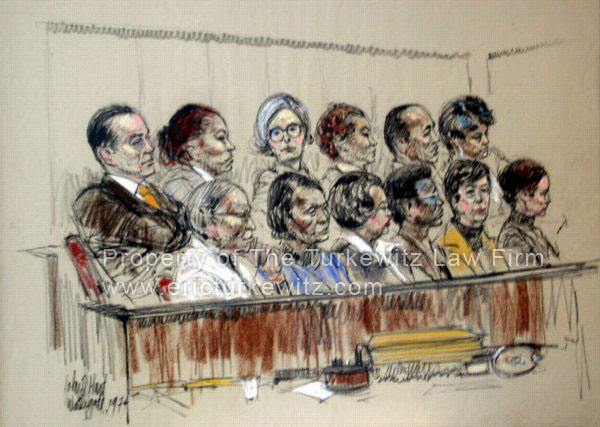 Stella Liebeck v. McDonald’s, a/k/a The McDonald’s Hot Coffee Case, continues to be in the news despite the fact it was tried 20 years ago in New Mexico. 20. Years. Ago.
Stella Liebeck v. McDonald’s, a/k/a The McDonald’s Hot Coffee Case, continues to be in the news despite the fact it was tried 20 years ago in New Mexico. 20. Years. Ago.
It was in the news two years ago with the documentary Hot Coffee.
And it pops up this week via postings at Abnormal Use and Overlawyered, among other places, claiming there are myths that need debunking, as if 20 years of analysis wasn’t enough. Even I’m bored with the subject, and this type of case fits in my wheelhouse, and is especially important to anyone that tries cases in front of juries.
Was this a frivolous suit because hot coffee is supposed to be hot? Or was it a perfectly reasonable case of an excessively dangerous product (scalding coffee) with an inadequate warning as the jury found? Should the case be better known, and summarized, as Hot v. Scalding?
You know what? My opinion doesn’t really matter. And yet I talk about it every time I pick a jury. Every. Single. Time.
Why? Because people form opinions based on headlines they see in the papers, be they digital or paper. People don’t form opinions based on run-of-the-mill cases because those hear about them. Only the outliers make headlines (which is often compounded by lousy reporting).
And so I bring the subject up, time and again, asking how people feel about this ancient and (in)famous case. I don’t try to change their minds. I don’t try to argue that case. And that is my point.
All cases are different. We all know that intellectually, but it is the emotional part of the brain that lawyers need to worry about. No matter which side of the -v- we happen to be standing on, we want to know– we need to know — if there is some preconceived notion about the overall subject (lawyers, litigants and lawsuits) that the person might have.
If a potential juror is going to have an opinion or emotional reaction (that they will admit to) it is likely that the McDonald’s coffee case will bring it up.
I’m bored with the actual details by now, yet I talk about it all the time. And so should you if you are picking a jury.
It doesn’t matter what you think. It only matters what they think.
Pingback: Brown M&M’s and Hot Coffee | Kansas City Legal Examiner | Kansas City Missouri Personal Injury Lawyer
At least once a month a client brings this case up when I’m making settlement recommendations.
The irony of the tort “reform” movement humping the PR on this case so much is that it drove countless people to seek out lawyers for their own matters. It wasn’t just the perception of jurors that became skewed.
A separate irony is that had McD’s made a reasonable settlement offer in the first place (instead of $800) then the case would have been much less conspicuous, if noticed at all, and it would not have, in the end, cost McD’s so much more in money and reputation.
Kind of an isotope of “the Streisand effect.”
My question is if the coffee was unreasonably hot and McDonald’s had settled cases in the past, why never over people who burned their lips or the roof of their mouth on it? Why were the lawsuits only over spills? It is one of the many reasons this case strikes people as strange, and the jury’s award based on sympathy, not reason.
and the jury’s award based on sympathy, not reason.
If the proof was insufficient the judge would have tossed the cases. I haven’t yet met a judge that believed s/he was a potted plant.
Great advise !
@Dan – FWIW, if you are not squeamish, I would recommend that you conduct a google image search on what happened to the lady who spilled the coffee.